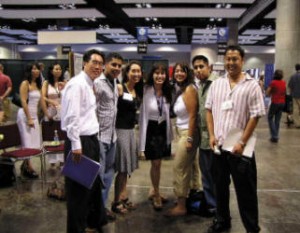Dr. Castellanos’ educational journey was one that was tremendously influenced by mentors and role models. Dr. Joseph White taught her the importance of navigating the system and worked closely with her to identify academic culture, its politics, and the role of civic responsibility. He helped to enhance her student development and exposed her to various opportunities that she needed to pursue for graduate school. Dr. White helped to articulate the dream, to move into a positive learning process, provided support to build the necessary self-confidence. In the process, he instilled the value of mentorship, community service, collaboration, and change (M3 mentoring model, 2022). Dr. White facilitated a mentoring relationship where did various professional activities with his mentees. For example, he wrote with his mentees, co-presented at professional conferences, and co-conducted educational consultations across the nation.
Dr. Castellanos’ philosophy of a good educator includes the role of an active mentor. In the process of assisting students to attain experience in the identified areas, Dr. Castellanos assesses their self-efficacy, social support, family ties, ethnic identity understanding, and campus involvement. As a mentor, she assists the learner to identify their passion, their potential, strengths, and ultimate purpose.
A key factor to being successful toward your preparation for graduate school is finding a mentor!
Mentors guide, provide advice, help you to socialize, become connected and networked into your field. Mentors are role models for you to follow and have knowledge to share. These individuals have insight on how to help you be accepted to graduate school and help you develop your skills to make up a strong academic portfolio.
A mentor is committed to the personal development of the student and is concerned of the social influences that affect the student and their educational experiences. This individual is invested in the student and helps the student build confidence in their potential. Patience, leadership, and visionary abilities are a few of the important skills a mentor requires to be most effective.
A mentor can be a faculty, university administrator, or community leader. Some students also have family members, peers, or graduate students who serve as mentors. A mentor knows the education process, is invested in your educational progress, and provides resources and guidance for your personal and professional achievement. Many students find one mentor and continue to be guided by this one individual throughout their college education. It is highly recommended for students to find MULTIPLE mentors. Each mentor teaches you something different. For example, one mentor can help you refine your research skills, another can guide you to find internships to enhance your practice in the field, and another mentor can help you refine your leadership skills. Take time to develop quality mentoring relationships with your mentors and do not take them for granted.
Mentoring is most effective when there is a connection between the student and the mentor. You do not want to assume that anyone will take the role of a mentor. Some faculty have many mentees or have other duties that keep them from taking on more students. It is also important that you take a class or two with the faculty prior to pursuing a mentoring relationship. Rapport must be built and your must demonstrate your dedication and commitment to your studies. Most faculty feel enriched by fostering mentoring relations and are committed to working with students invested in their education.
